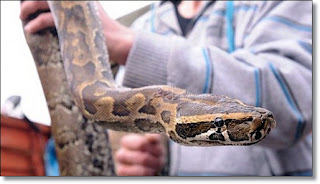Brightly colored plastic grass, plastic eggs, Lilies and chocolate pose the biggest risk to pets at Easter time. These items may be symbols of the season but they can also make dogs and cats very sick and even result in death.
“Lilies can be very toxic to cats,” cautions Dr. Julia Georgesen at Blum Animal Hospital in Chicago. Georgesen is also resident pet expert for Eye on Pets on WBBM Newsradio and cbschicago.com. “All parts of the plant, the leaves, the stems and the pollen cause severe kidney failure in cats and it can happen 6-12 hours after they eat the plant.”
Georgesen says there is no antidote for Lily poisoning in cats. The best chance of survival for a cat is early veterinarian intervention. Early symptoms of poisoning are vomiting, dehydration, staggering and seizures. Cats may even stop producing urine.
“If you have a cat, you should avoid having Lilies in your house. That includes Tiger Lilies and Day Lilies,” she says. Cats can get sick from drinking even a small amount of water from a vase of Lilies.
“The pet poison center says calls increase 200 percent during the week of Easter,” Georgesen says and many of those calls involve chocolate – another common Easter treat that is toxic to pets. “Chocolate contains a chemical relative of caffeine that causes vomiting, diarrhea, hyperactivity, abnormal heart rhythms, seizures and death in both dogs and cats.” The darker and more bitter the chocolate, the greater the danger.
Plastic and/or aluminum Easter grass can also cause problems for pets and may lead to a serious intestinal blockage that might require surgery. “The plastic becomes stringy and can anchor at the base of a pet’s tongue or stomach, making it difficult to pass.” Georgesen says consider using straw, tissue paper or shredded newspaper instead to line Easter baskets.
If you are having an Easter egg hunt, be careful with plastic eggs. Georgesen says they can be broken, chewed and swallowed by pets, causing vomiting, diarrhea, and obstructions. Hard-boiled eggs can spoil quickly and make pets very sick, so keep track of all the eggs you use.
And while a fluffy little duckling or bunny might seem like an appealing Easter gift, Georgesen says they are anything but. For example, the average domestic duck relieves itself once every 15 minutes.
“Once that novelty wears off and the daily responsibility of feeding, cleaning and exercising sets in, a lot of these animals are dumped in parks or shelters,” says Georgesen. “Play it safe and buy your child a plush stuffed rabbit or chick instead.”
FOLLOW US!



















